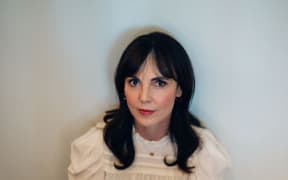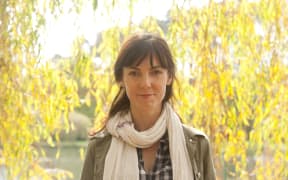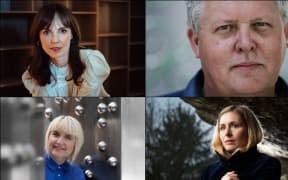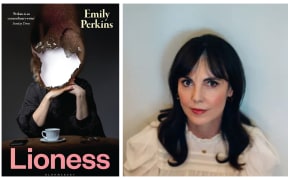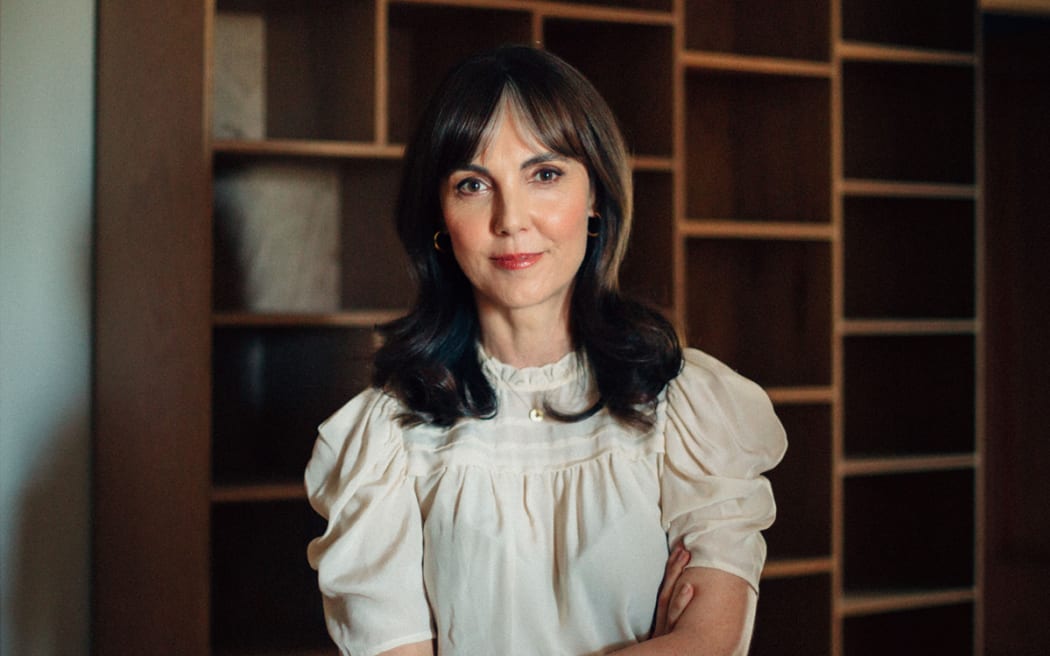
Author Emily Perkins: "I'm a former goofy, sometimes lonely kid whose feelings were met and imagination stimulated by the stories in books." Photo: Ebony Lamb
Author Emily Perkins says 'radical wildness and imagination' are more necessary now than ever, in a speech delivered as part of a nationwide series.
Perkins MNZM is an award-winning writer, best known for her novels Lioness, The Forrests and Novel About My Wife. She shared this talk at a recent Wellington event for 'All in for Arts: He waka toi e eke noa nei tātou', an event series by The Arts Foundation Te Tumu Toi and Creative New Zealand.
"I came to writing from being an obsessive reader - as a child I read so much I almost felt I was a book. At home reading was actively valued, not just tolerated. It was an excellent way to get out of other things I didn't want to do, like go outside. We often had music on, and I was taken to plays and concerts and art classes - things that can easily be consigned to being middle class pursuits. But nothing about those encounters with art felt polite or constrained. When I think of the people making that work - like the dancers from Limbs, and Red Mole Theatre, and the Topp Twins - they just seemed so free. Their work wasn't tame and pretty, it was wild, funny, radical, reckless - qualities that pulled me towards that world.
We also had performers and artists come to our primary school, which is key for bringing art to everyone. It wasn't till I was older that I met people who'd carved out lives in the arts despite parental disinterest, disapproval or lack of access. Those people are the experts, the ones I really admire, and who we should be listening to.
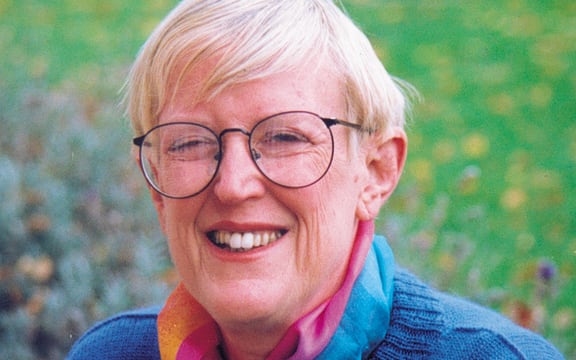
Books by New Zealand authors like Margaret Mahy, pictured, were important to Emily Perkins when she was growing up. Photo: HarperCollins
So I am not some solo, self-sufficient artist with a vocation, who was always going to make work against the odds. I'm a former goofy, sometimes lonely kid whose feelings were met and imagination stimulated by the stories in books. It wasn't all comfort and escape, I read about hard things, 20th century horrors, grief, loss, and survival. Books by Patricia Grace, Maurice Gee and Margaret Mahy placed me here and gave me a sense of where I lived. And books multiplied the world, as they do, endlessly. I write to be in active conversation with the world - to find meaning and pleasure. I love the medium, I love language, I love creating characters and exploring stories and feelings and ideas through them. I love the way writing gets me to stop and pay attention - to really feel alive. And I love when other people connect with my work, when they bring their own meaning to meet mine. It goes back to that feeling I had as a kid that books were portals, that holding one was like holding possibility in your hands.
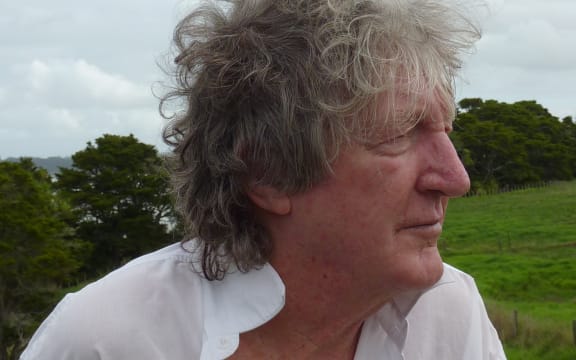
Visiting writers like Sam Hunt were like 'rock stars' when Perkins was at high school. Photo: Supplied
I went to a high school where there weren't fancy resources but there was space given to the arts. Visiting writers were rock stars (shout out to Sam Hunt). School plays, school bands - I remember as a third former being terrified and enthralled by assembly skits performed by a group of 7th formers who called themselves The S&M Glee Club. (I mean, we worry about kids' exposure to racy content now...) At Toi Whakaari and then university, studying literature and creative writing, I didn't pay fees - I must have been one of the last intakes to have a free tertiary education, and it makes a crucial difference. Fees free first year is great, but we need to do more. My first short story was published in Sport, a literary journal that had a small amount of funding from Creative New Zealand but which was largely created by the editors' unpaid labour and love of new writing. I've had a couple of well-timed Creative New Zealand grants which have enabled me to complete books, a Sargeson residency, and the incredible generosity of the Laureate award - you get the picture. Access, education, and material support are absolutely key to making a life as an artist.
Arts and creativity have always been intrinsic to Aotearoa. I'm blown away by the work being made here in 2024. The community spirit is powerful. The talent is extraordinary. But it's not, unfortunately, unstoppable. People stop making art all the time, because it's very hard here to make a living, even for seasoned and celebrated practitioners. The support given by CNZ, the Arts Foundation and other organisations is so important. And, I believe, for true equality of access we need a Universal Basic Income - universal meaning for everyone, not only artists. We need to prioritise arts in the school system, to make visible how much a regular part of life it is, to understand that a full life depends on creativity. What are the powers that be afraid of, you have to wonder, when the humanities are starved of resources? People with imagination? I wonder if some decision makers feel shut out from art, as if they'd never be able to do it, or it's not for them - but we all encounter and enjoy creativity all the time, whether it's listening to music, watching drama or comedy, or reading books - even if all you did was go to one musical called Hamilton in recent years you're engaging with art, maybe just don't make yourself a party political spokesperson for it.
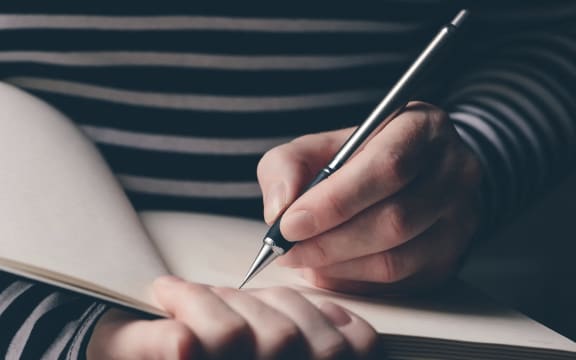
Creativity will be what saves us, Perkins says. Photo: IGOR STEVANOVIC / SCIENCE PHOTO
And we're all creative, not just those of us for whom it's our work. I watch a reality survival show called Alone, a kind of Outward Bound on steroids. There's a season screening at the moment that was filmed in Te Waipounamu. Contestants have to survive in the wilderness as long as they can, with not much beyond a knife, a tarpaulin and some paracord. They have to build shelter, find food, and avoid predators - or in the South Island, sandflies.
Over the many (many, many) seasons I've watched, I've noticed that although conserving calories is a priority, as the contestants are literally starving, the people that do best - who can handle the solitude, who can celebrate their surroundings and the challenges they face - are the ones who expend precious energy on making a puppet, or carving decorations into wood, or playing dress-ups with the skins of animals they've trapped, or singing and dancing alone by their fires. The contestants that don't do that succumb to loneliness faster. They feel at war with the environment rather than connected. Even if they have superior hunting and building skills, they are often outlasted by the creative ones.
The world right now feels wild and out of control - you don't need me to remind you about war, genocide, climate disaster, unethical AI development that would have robots coming for our jobs before doing things we might actually need. We have to meet this time with radical imagination and wildness of our own - the campfire wildness of creativity, of actions, visions, stories and experiences that bring us together, that reach across from one consciousness to another, to many. It's more than nice to have - it's urgent."
The All in for Arts event series is delivered by The Arts Foundation and Creative New Zealand. Listen to Emily deliver these words here.
